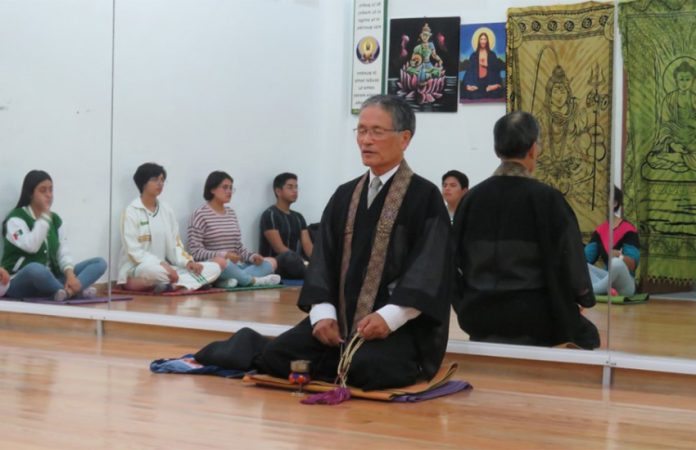The first time I saw Rev. Kochi Todaka, he was sitting on a raised platform in the auditorium of the Nikkei-Kai Association of Guadalajara.
In a low melodic voice, he intoned Buddhist sutras as members of the audience walked forward and lit sticks of incense in memory of their dead loved ones. It was August of 2022, and I had been invited to attend what was dubbed the “Japanese Day of the Dead” by the Nikkei Center’s president Francisco Kobayashi.
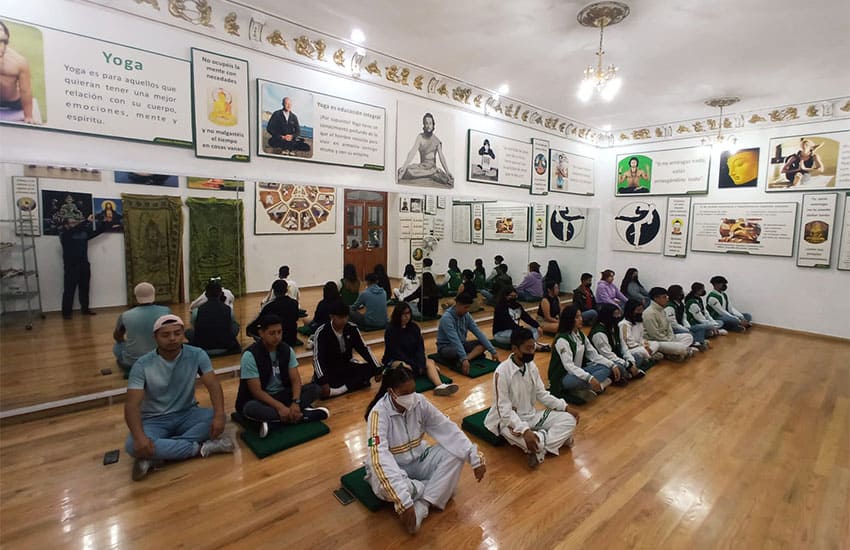
Todaka, who serves as a reverend for a Buddhist temple in Mexico City, is often called upon to travel between Mexico City, Monterrey and Guadalajara, where the country’s largest Japanese-Mexican communities reside. He performs Buddhist “mass” (as he calls it), weddings, funerals and services like the one for Day of the Dead.
Most of the communities he serves are the descendants of immigrants who were forced away from Mexico’s borders and ports under pressure from the United States government during World War II. Like in the U.S., Japanese immigrants in Mexico had their property and possessions taken from them and were obligated to establish themselves in major cities like Guadalajara and Mexico City. Thriving communities of families still exist in both cities, and many maintain the ancient customs that their ancestors brought with them to Mexico.
“Not all of them are Buddhist,” Todaka tells me one afternoon as we sit in the garden of the Eko Ji temple in Mexico City’s Nápoles neighborhood. “For them, it’s more about respecting their ancestors, which is very important in Mexico. It’s also about checking in with the community, seeing how people are doing that you haven’t seen in a while.”
Rev. Todaka is 78 years old. His stick-straight hair and beard are streaked with gray, and his Spanish is still heavily laced with a Japanese accent. His speech holds pauses intermingled with bubbling laughter when he says something that amuses him.
He has been serving as the reverend of the Eko Ji temple since 2004.
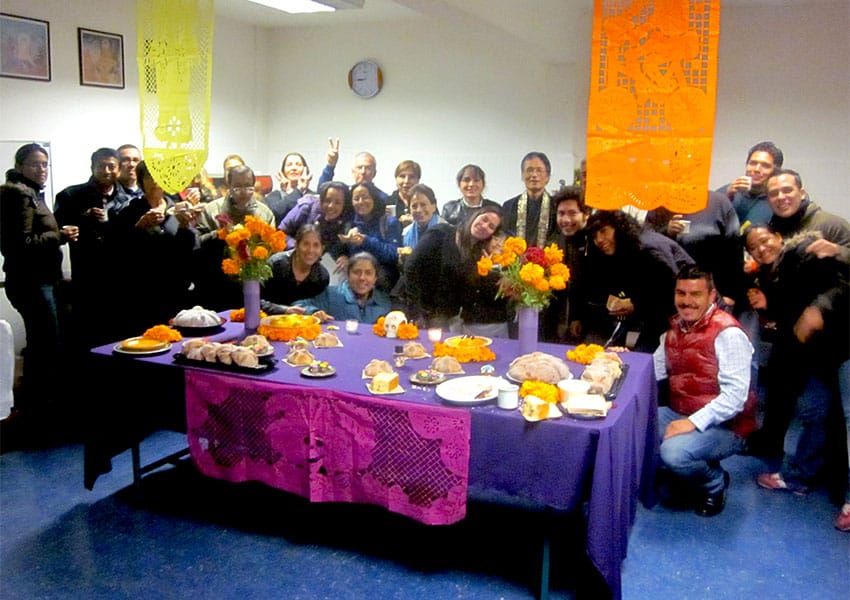
Rev. Todaka arrived in Mexico in 1971, sent by the Japanese company he worked for that owned and operated ice factories and constructed industrial refrigerators for commercial fishing vessels. They were looking to expand their foreign market, and Todaka — being a project-oriented person — was right for the job. In 1976, his company wanted to transfer him to Chile or Cuba — two countries he felt were risky at the time — so he quit.
Already married to a young Mexican woman named Maria Guadalupe, Todaka stayed in Mexico. A few years later, he was offered a job with Mitutoyo, a Japanese company now famous for the development of extremely exact measuring equipment.
The company was founded by Yehan Numata, the third son of a priest of the Jodo Shinshu sect of Buddhism, one of the 13 main Buddhist sects in Japan. Numata traveled to the United States at the turn of the century to do missionary work and was passionate about the promotion of the Buddha’s teachings. After several failures to start a temple in San Francisco (he graduated with a degree in Economics from Berkeley College), he decided to start his own company in 1934.
“He realized that without money, he wouldn’t be able to spread the word of the Buddha,” Says Rev. Todaka, “and he didn’t want to be bothering donors all the time.”
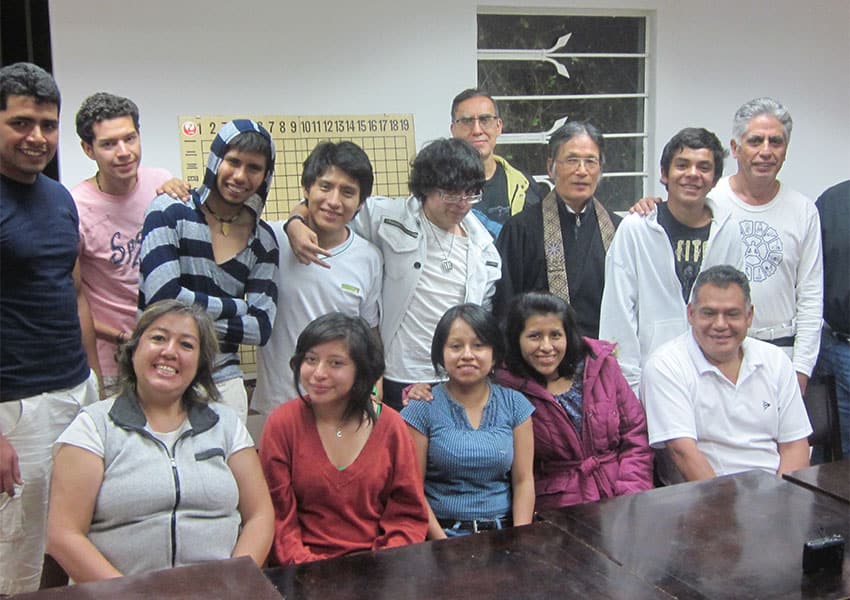
Mitutoyo gave Todaka a job in 1980, and in 1985 they founded the Bukkyo Dendo Kyokai de México, a regional arm of their organization dedicated to the teachings of Buddha. It would eventually found the Mexico City temple.
At first, they brought Buddhist ministers from Japan to serve at the temple. Later, they started looking for someone local, and Todaka decided that he would study to be a minister.
“Since I was 3 or 4 years old, I was very attracted to nature, and Buddhism is very nature-based. There is no god, no powerful being, no myth about who created the world in Buddhism; all is just cause and effect; the rest isn’t important. You are born, grow, live, age and die; it’s all part of a natural cycle.”
From 1997 to 2001, Todaka studied through a correspondence course and spent a month each year in Kyoto, eventually graduating with a degree in ministry and teaching in the Jodo Shinshu tradition of Buddhism. In 2004, he took over leadership of the Mexico City Eko Ji temple.
“I can’t give you advice because I don’t know you,” he says about his role as reverend. “I feel very irresponsible telling people what to do. Only through my own experience can I say, this is what happened to me. Not ‘do it this way.’ It’s your choice, and if you have any doubts, I am here for you.”
The teachings of the Buddha form the core of the temple’s activities. Todaka explains that their temple doesn’t pick and choose sutras, or scriptures, as do some sects of Buddhism. Rather, they provide all the Buddha’s teachings to their community at the temple. There are kids’ activities, yoga and martial arts classes but all with a spiritual foundation.
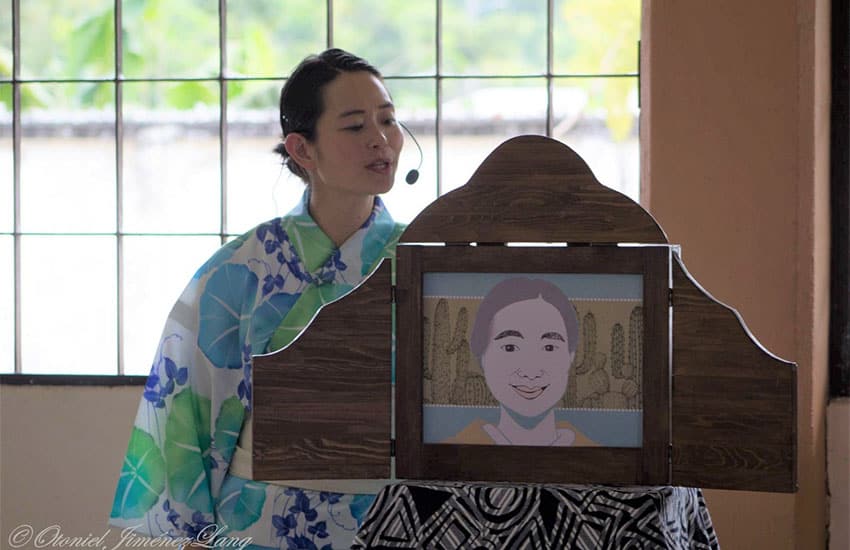
Todaka brings me the 577-page teachings of the Buddha in Spanish and English. Learning is like medicine, he tells me: you have to actually take it for it to make a change.
But the reverend also makes it clear that he doesn’t think everyone is a worthy case for instruction. As opposed to other religions, he tells me, Buddhists don’t hold out hope for everyone.
“Delinquents, for example. I don’t go and teach in jails,” he says. “They are not ready, they don’t have the capacity. How many people are alive today? 8 billion? You have to choose wisely who to teach.”
“Of 100 students that are learning something, it depends on each individual, how they learn and if they are interested,” he says. “If your heart isn’t prepared, you’ll never learn.”
I ask him about the recent controversy surrounding the Dalai Lama and his inappropriate remarks to a young boy at one of his events.
“It worries me a little that Mexicans see him as the father of Buddhism, which is not true,” he says. “[His is] a Tibetan sect, and they are very particular, mixed with the Tibetan religion that believes in the reincarnation of the Buddha. In the teachings of Buddha, there is no reincarnation.”
The Eko Ji temple has been shuttered for the past year and a half due to problems with the local city government over the building’s renovation. Last year, as a way to keep the community engaged, the temple leaders opened a cafe next door where diners could get a taste of Buddhist cooking as well as sit in the beautiful backyard where we are chatting on this Friday afternoon.
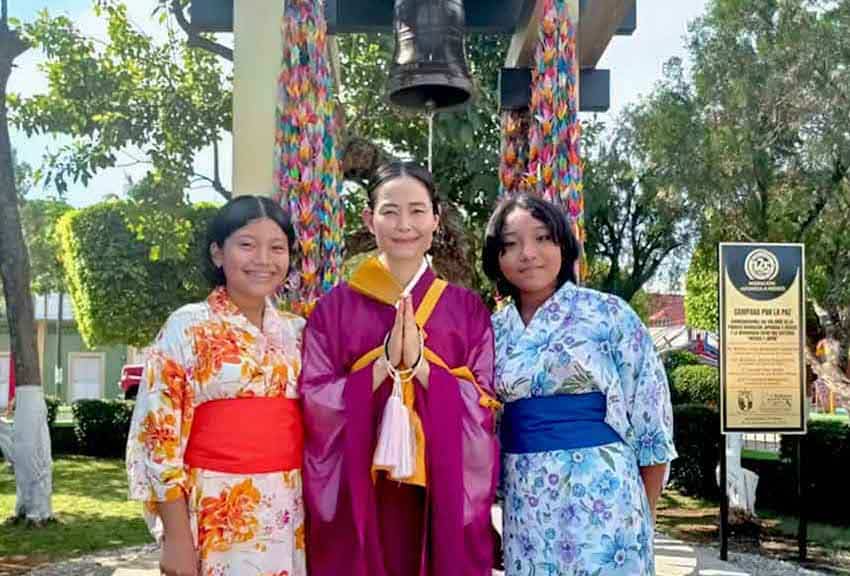
Todaka is particularly fond of wild forests, and this garden suits him just right. Lush and overflowing, it has birds that trill in the top branches and bees that buzz around the flowers below. There is little intervention in the garden’s design, and endemic plants grow wild.
By spring, the cherry blossom tree will drip heavily with pink petals just like its ancestors in Japan. Hopefully, by then, the temple will be open and running once again. Rev. Todaka will have retired by that time, and a new reverend, Shaku Bokusho, will have taken over everyday operations.
“We promote Buddhism for more [reasons] than just to do it,” says Bokusho when we talk later on the phone. “Our goal is world peace, and the teachings of the Buddha are meant to end suffering. There is suffering because there is ego.
“But when something comes along that’s different from what we know, we all have our own prejudices; that’s what causes war between countries and people.”
In order to circumvent people’s prejudices, she says, their mission and activities are two-pronged. The Temple Eko Ji is the religious side of their organization, and the Eko Ji Cultural Center is the civic side. Through activities like Buddhist cooking classes, traditional dance workshops, martial arts, Japanese calligraphy, yoga and meditation, Bokusho says, they promote acceptance of diversity.
“Through these cultural activities, we believe it’s easier to create mutual understanding,” says Bokusho.
She has been working with the temple since 2019 when she was sought out by Todaka to replace him as minister. Now, with her at the helm, Todaka has no anxiety about letting go of his post after nearly 20 years.
“I always think that whatever day I am having is the best day. Like right now, here talking to you, that’s the best moment I could be having,” he says.
I ask him what he will do after retiring.
“I want to start a museum with my collection,” he says and pulls out his phone to show me photos of the multicolored butterflies that he has collected in the southern forests of Mexico, as well as in Ecuador, Peru and Panama.
Bugs are his passion, he tells me, but Buddhism has shaped his life.
Lydia Carey is a freelance writer and translator based out of Mexico City. She has been published widely both online and in print, writing about Mexico for over a decade. She lives a double life as a local tour guide and is the author of Mexico City Streets: La Roma. Follow her urban adventures on Instagram and see more of her work at www.mexicocitystreets.com.
